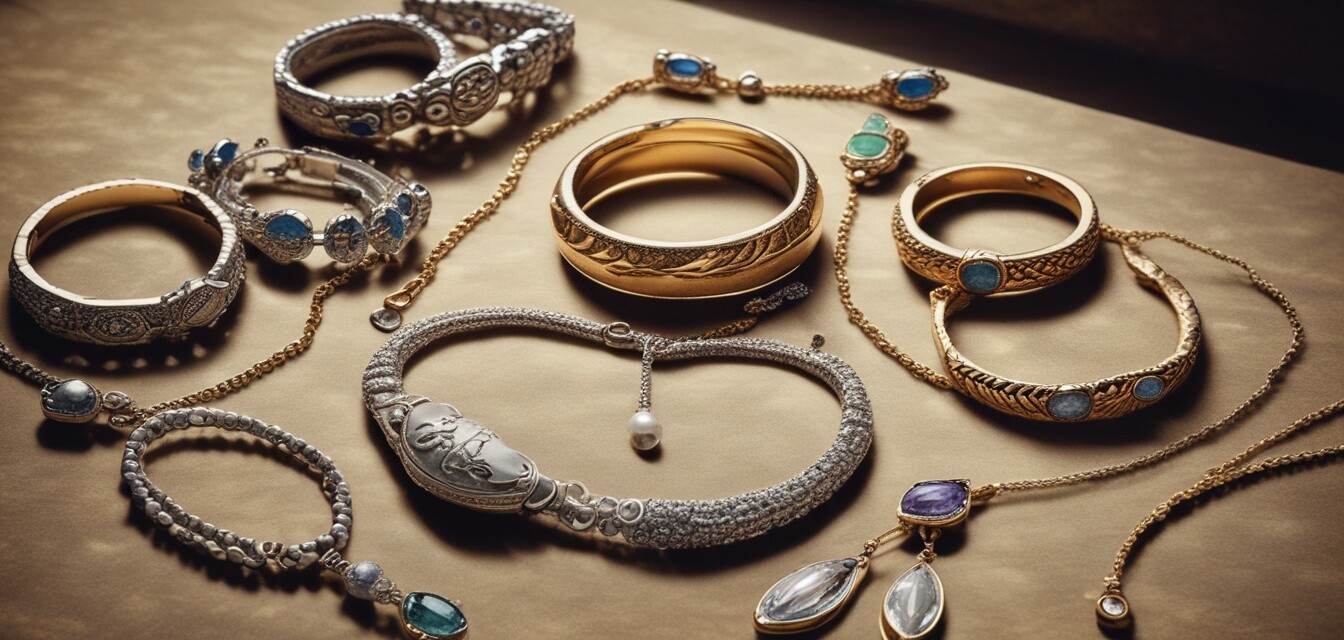
The Psychology of Jewelry: Why We Wear It
- Jewelry reflects personal identity and self-expression.
- It holds cultural and historical significance across various societies.
- Jewelry often symbolizes important life events and milestones.
- Understanding the psychology behind jewelry can enhance personal choices.
Jewelry has always been an intriguing part of human culture. From prehistoric times to today's fashion statements, wearing jewelry serves as a way to express individuality, symbolize deep-rooted beliefs, and connect with historical traditions. This article examines the psychological aspects of jewelry—exploring its role in enhancing self-identity, self-expression, and cultural significance.
The role of jewelry in self-expression
Wearing jewelry is often a reflection of who we are. It provides a unique avenue for self-expression and allows individuals to showcase their personal style, beliefs, and values. Here are several ways jewelry can express our identity:
- Style Statement: the choice of jewelry can indicate taste and fashion sense, acting as a highlight of personal aesthetics.
- Emotion and Mood: different types of jewelry might resonate with our feelings at any given time, influencing our mood.
- Storytelling: many pieces carry personal stories or inheritance value, linking the wearer with past generations.
Cultural significance of jewelry
Beyond personal expression, jewelry also holds substantial cultural significance. Across the globe, different pieces symbolize unique traditions and heritage:
| Culture | Jewelry Type | Significance |
|---|---|---|
| Indian | Gold Bangles | Symbol of wealth and marital status |
| Maasai (Kenya) | Beaded Necklaces | Represents tribe status and identity |
| Chinese | Jade Jewelry | Symbol of purity and moral integrity |
| Western | Engagement Rings | Symbol of love and commitment |
Jewelry as a symbol of milestones
Jewelry often plays a vital role in marking significant life events. Whether it relates to personal achievements or cultural ceremonies, this form of adornment is steeped in meaning:
- Engagements and Weddings: rings and bands symbolize commitment and love.
- Graduations: class rings represent academic achievement and personal growth.
- Anniversaries: gifts of jewelry are often given to commemorate lasting love.
Psychological impacts of wearing jewelry
According to sociological studies, wearing jewelry can have profound psychological effects:
- Boosted Confidence: Many individuals report feeling more confident and empowered when adorning themselves with jewelry.
- Social Status: Displaying high-quality or unique pieces can elevate perceived social standing among peers.
Understanding your jewelry preferences
By reflecting on the psychological factors influencing your choices, you can find pieces that resonate more deeply with your identity:
Tips for beginners
- Explore different styles to discover what feels right for you.
- Consider the emotional significance of pieces when making a purchase.
- Research the cultural meanings of various jewelry types to understand their importance.
Conclusion
The psychology of jewelry demonstrates that our choices in adornment extend beyond aesthetics. By understanding the reasons behind wearing jewelry—from self-expression to cultural significance—it is evident that these pieces hold much deeper meaning. Empower yourself with the knowledge shared in this article to make informed choices about your jewelry, enhancing not only your personal style but also your connection to the items you wear.
Pros
- Enhances personal expression and identity.
- Represents cultural and historical significance.
- Marks important life milestones.
- Can boost confidence and perceived social status.
Cons
- Can be expensive.
- May require maintenance and care.
- Could lead to societal pressure regarding fashion trends.
Learn more about jewelry
Interested in further understanding jewelry? Check out our other articles: